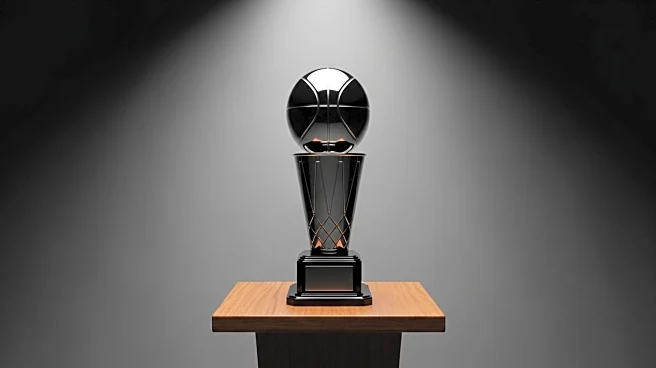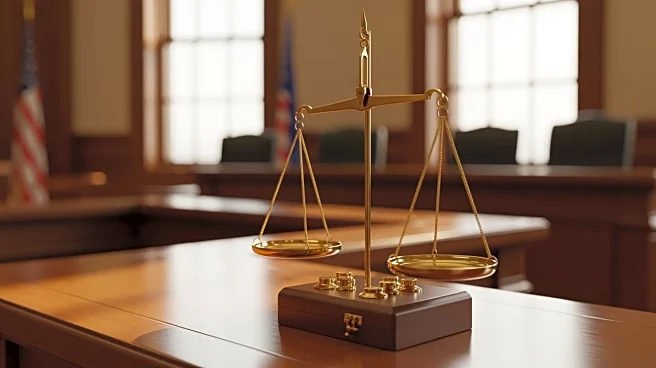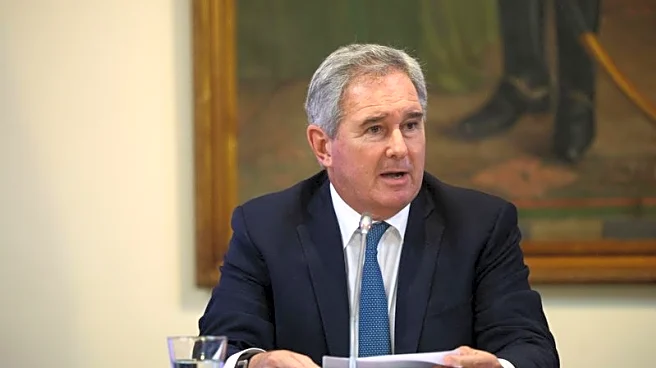What is the story about?
What's Happening?
Breanna Stewart, a prominent player for the New York Liberty and Vice President of the WNBA Players Association, has publicly refuted comments made by NBA Commissioner Adam Silver regarding the ongoing tensions between WNBA players and the league office. The controversy began with Minnesota Lynx star Napheesa Collier's allegations that WNBA Commissioner Cathy Engelbert made disparaging remarks about players' earnings and the league's media rights deal. Silver, in response, acknowledged Engelbert's leadership during a period of significant growth for the WNBA but suggested that the situation had become 'too personal.' Stewart, during a panel appearance, expressed her support for Collier, emphasizing that the issue is business-related and not personal, and called for transparent negotiations.
Why It's Important?
The dispute highlights the ongoing challenges within the WNBA regarding player compensation and league management. Stewart's rebuttal to Silver's comments underscores the players' demand for fair treatment and equitable financial terms. This situation could impact future collective bargaining agreements and the overall relationship between players and league executives. The public disagreement also brings attention to the broader issues of gender equity in sports, potentially influencing public perception and policy discussions around women's professional sports leagues.
What's Next?
As the WNBA players and league officials continue to navigate these tensions, the focus will likely shift to upcoming negotiations for a new collective bargaining agreement. Stakeholders, including players, league executives, and sponsors, will need to address the underlying issues of compensation and respect within the league. The outcome of these discussions could set a precedent for how similar disputes are handled in the future, potentially affecting the league's growth and player satisfaction.
Beyond the Headlines
The dispute between WNBA players and the league office raises important questions about the balance of power and influence in professional sports. It also highlights the cultural and ethical dimensions of leadership and communication within sports organizations. The resolution of this conflict could lead to long-term changes in how player associations interact with league management, influencing the dynamics of professional sports governance.















